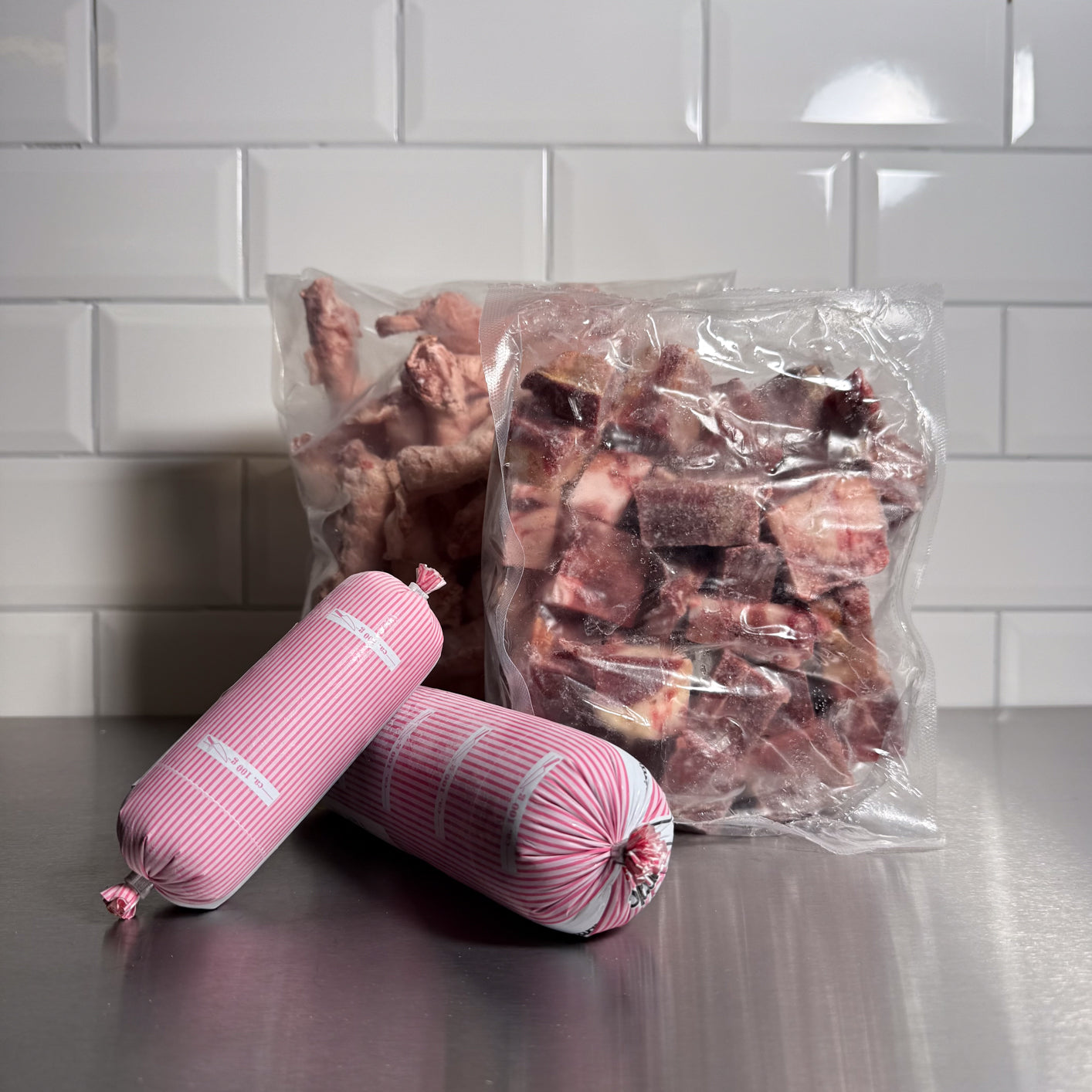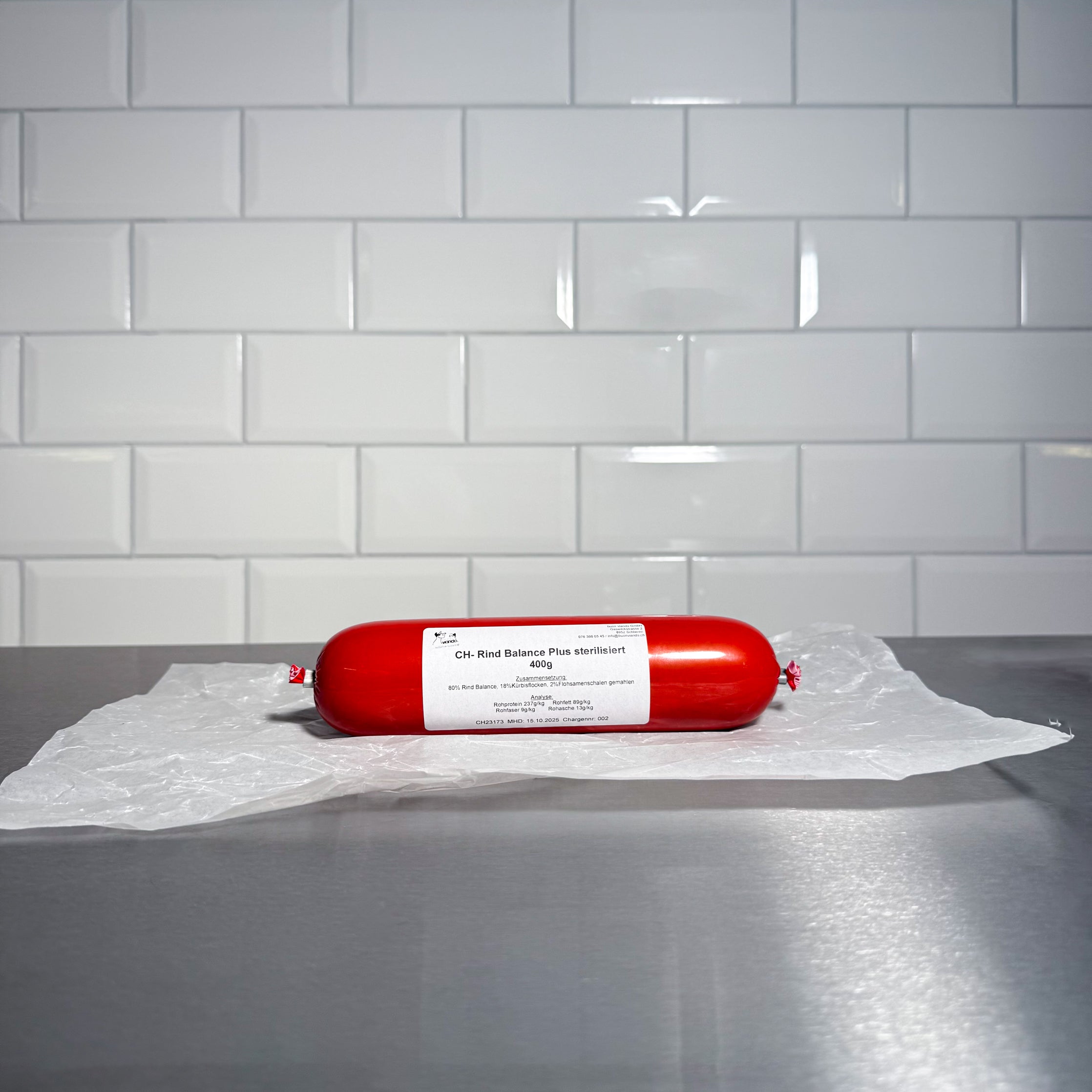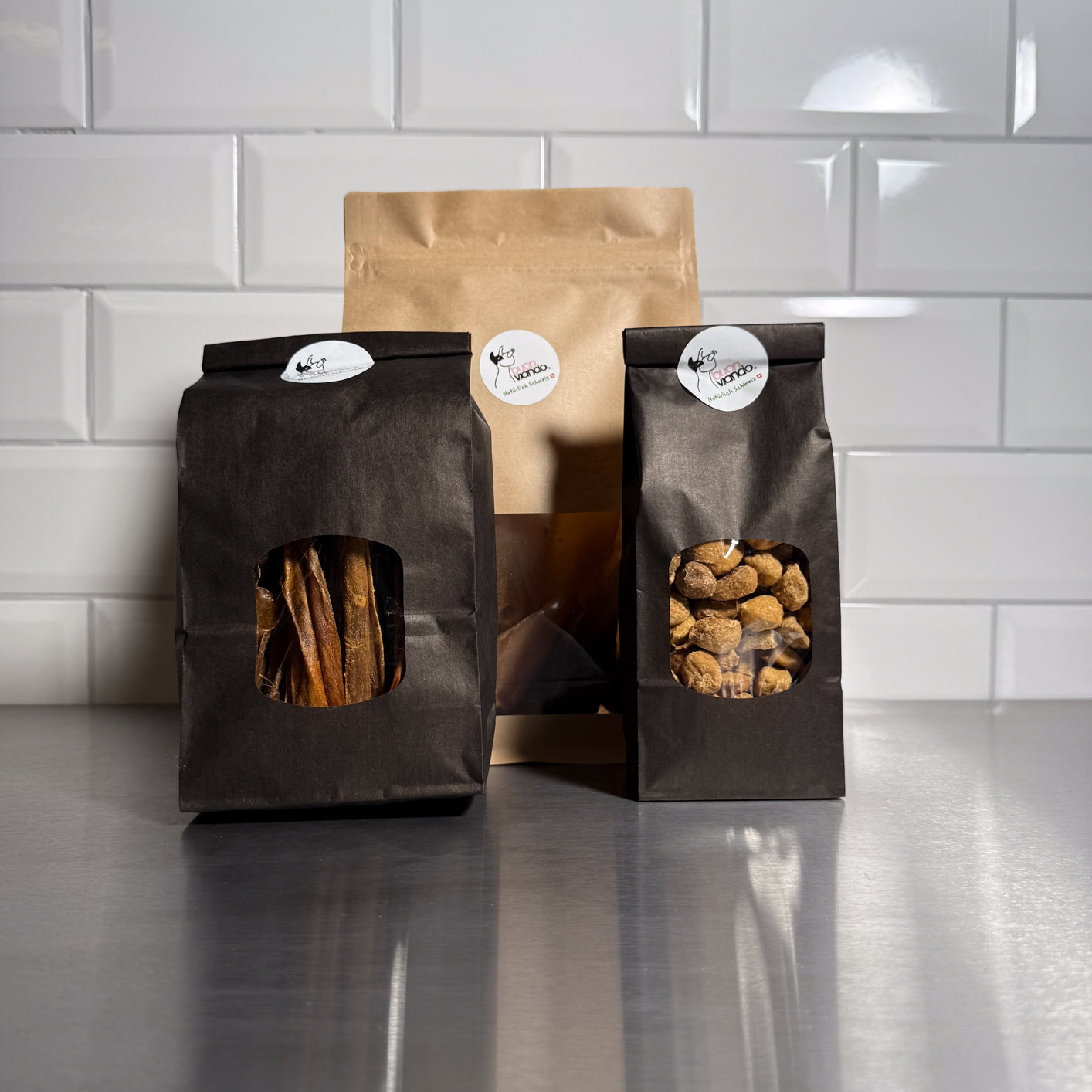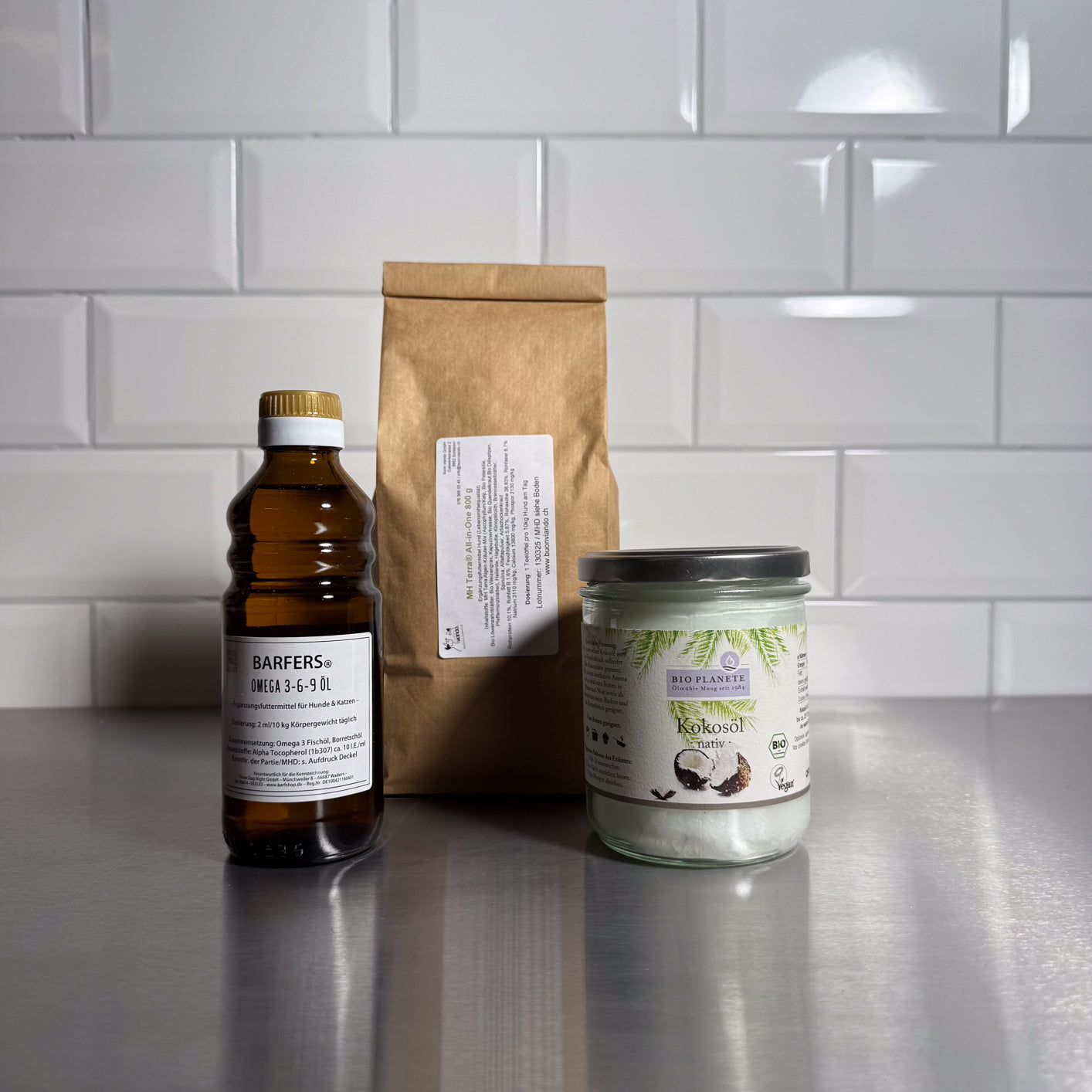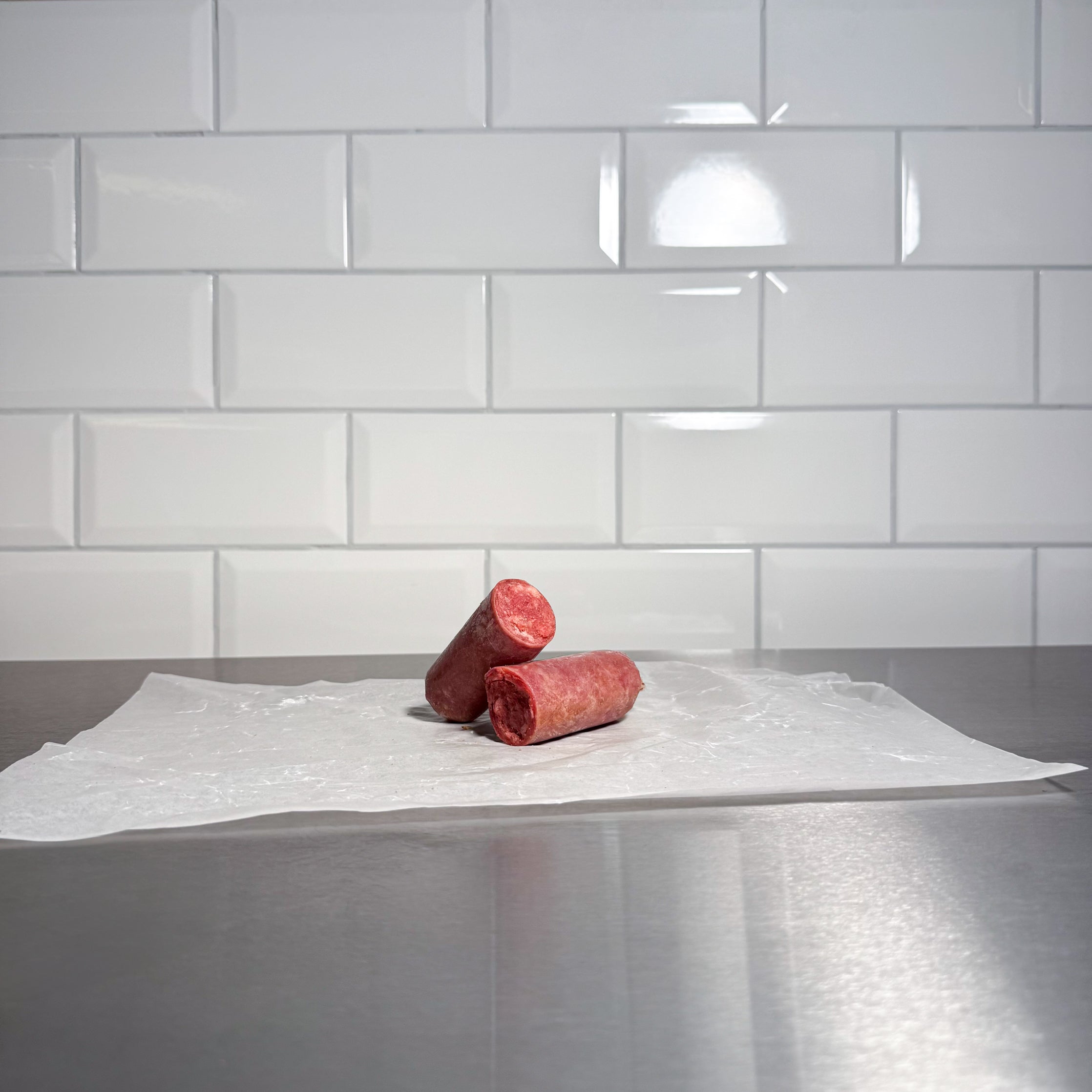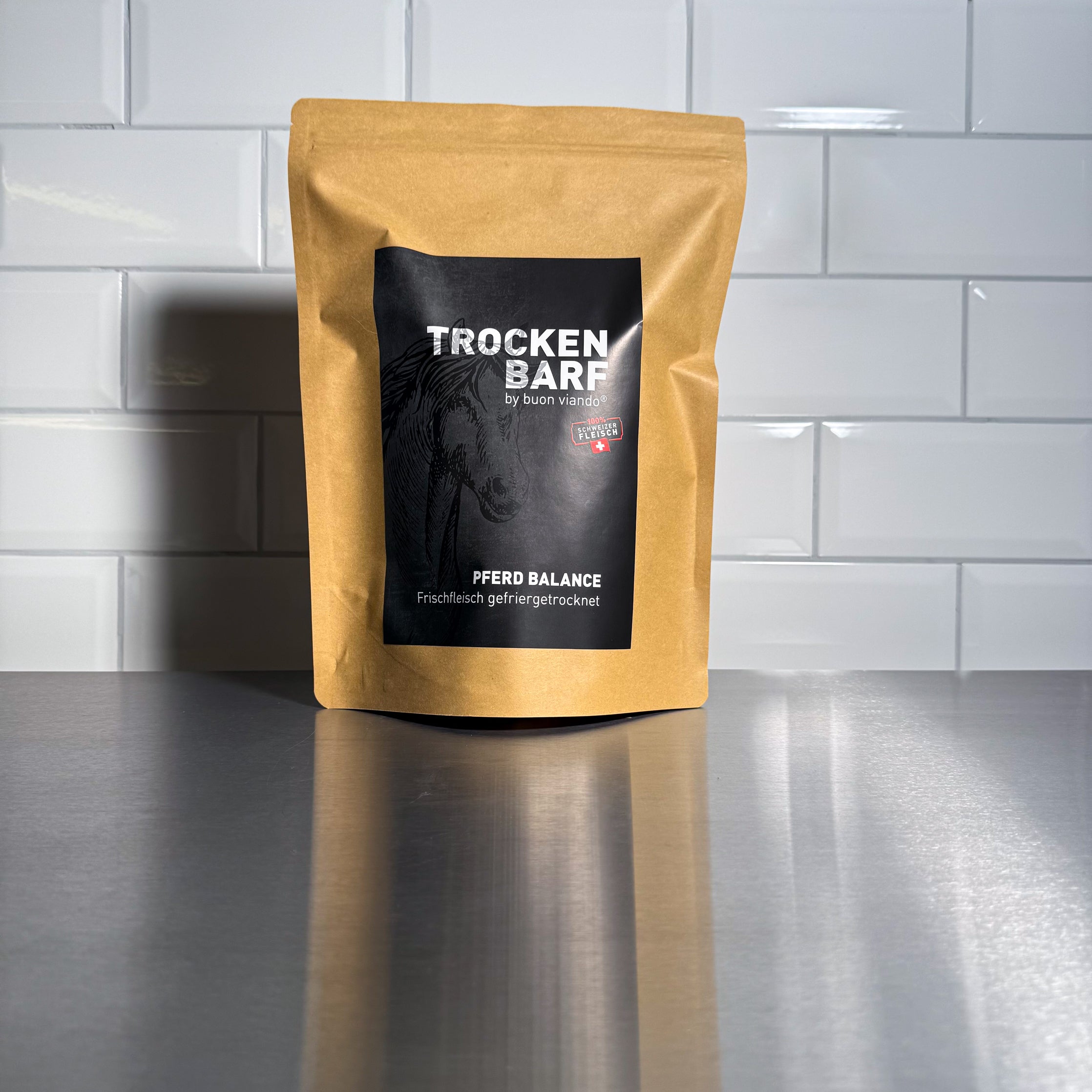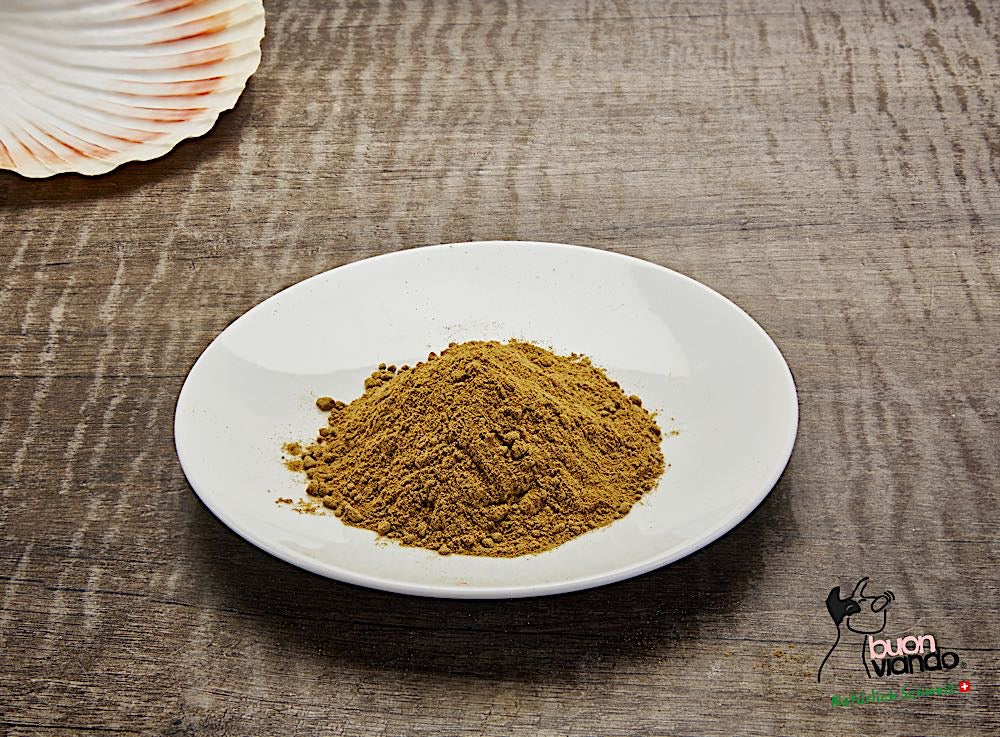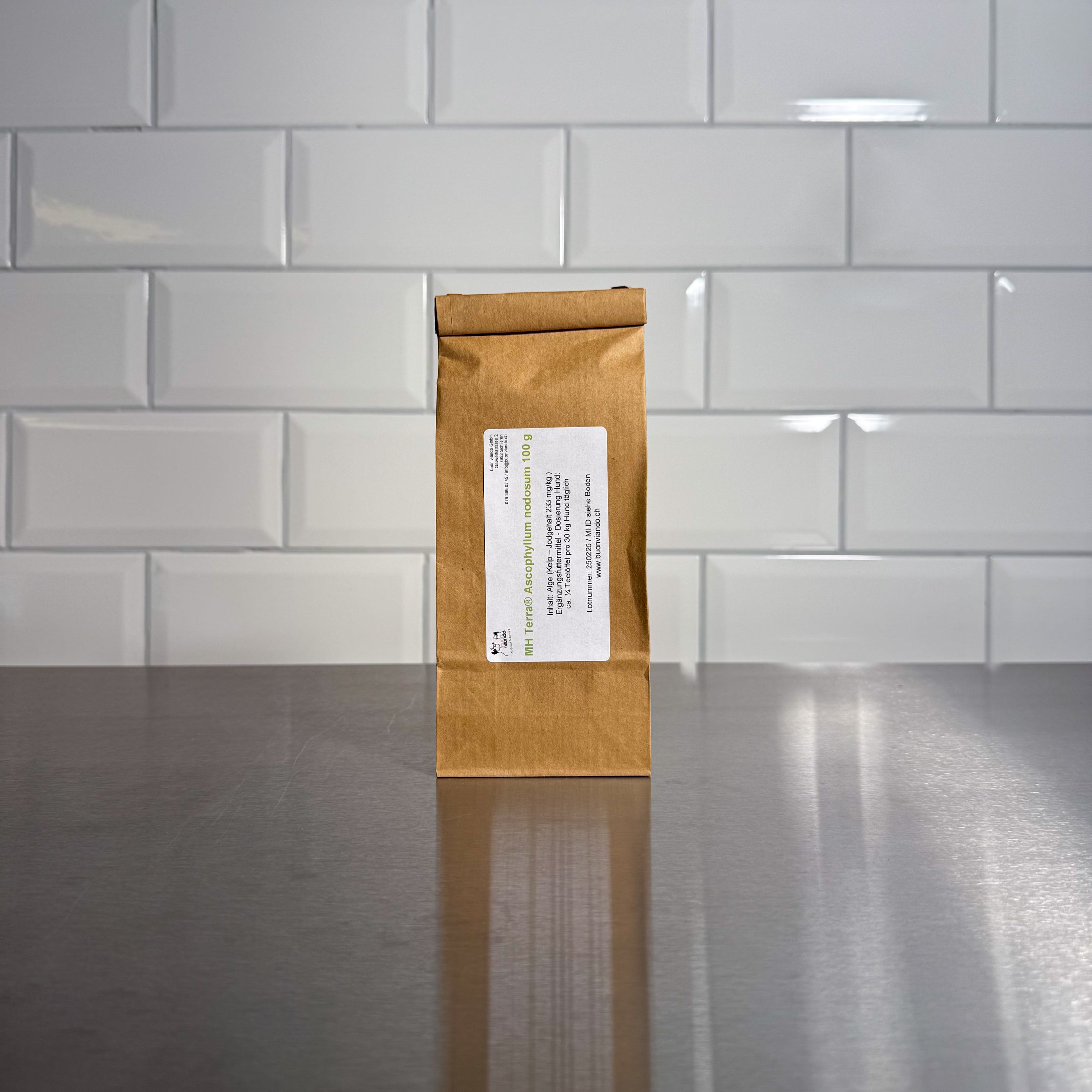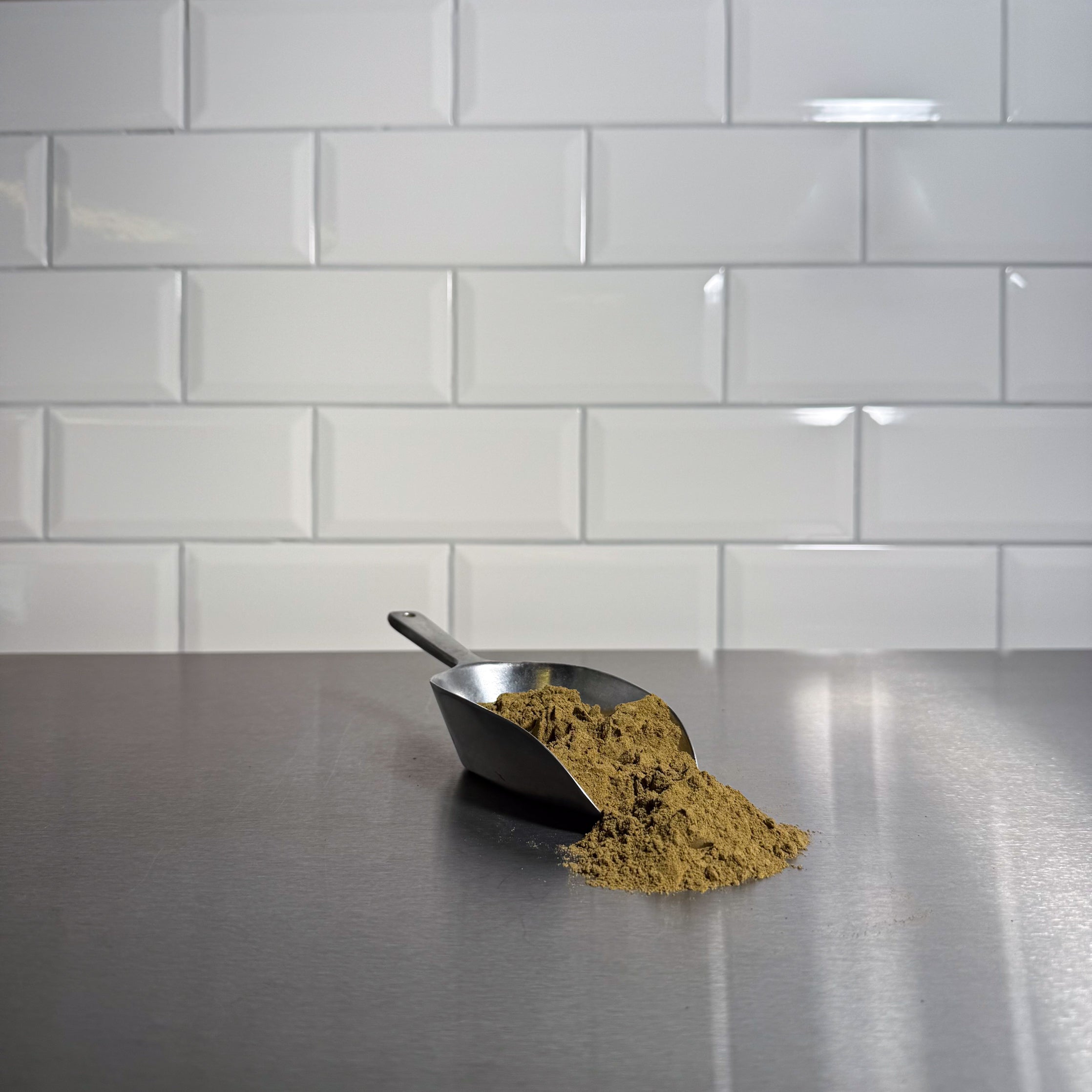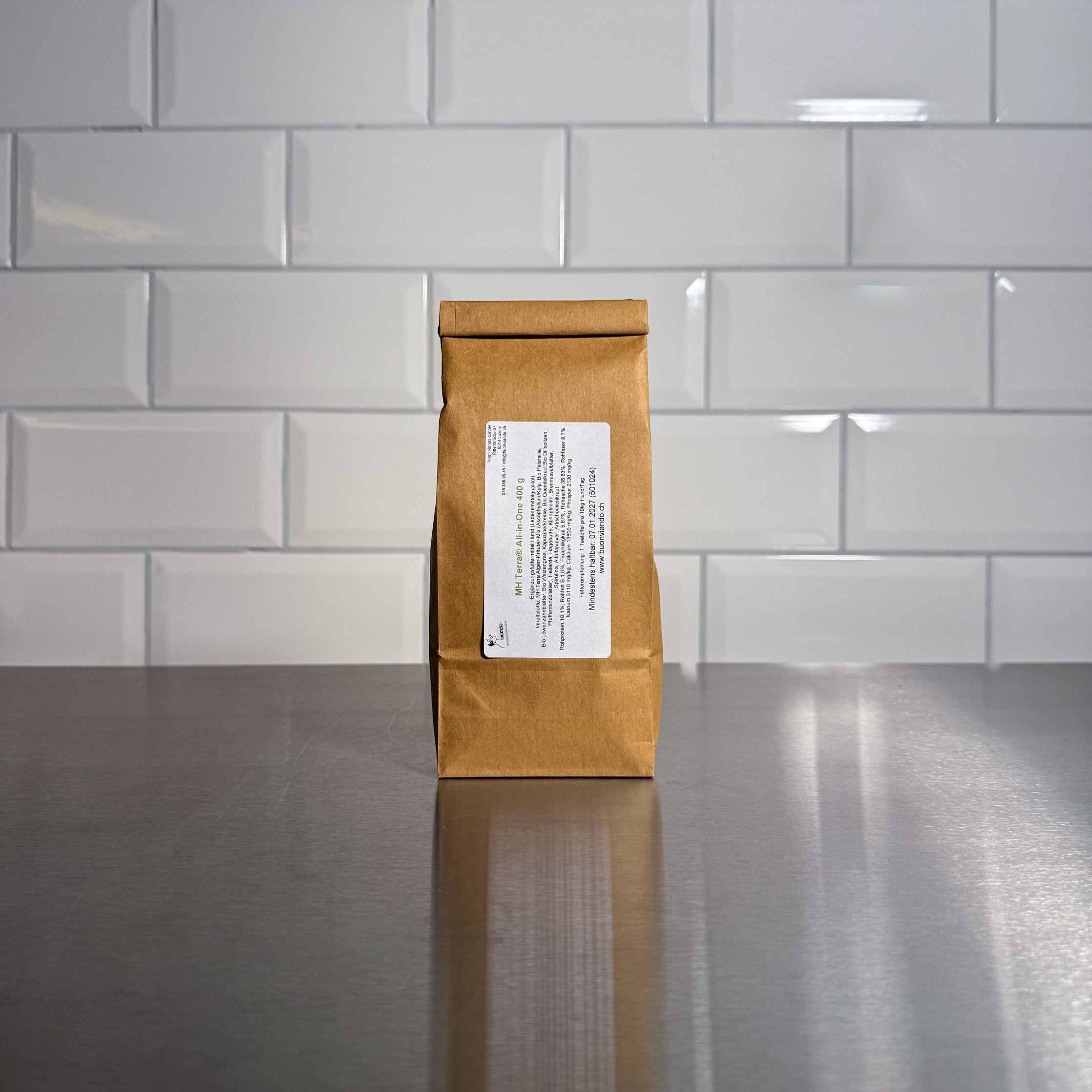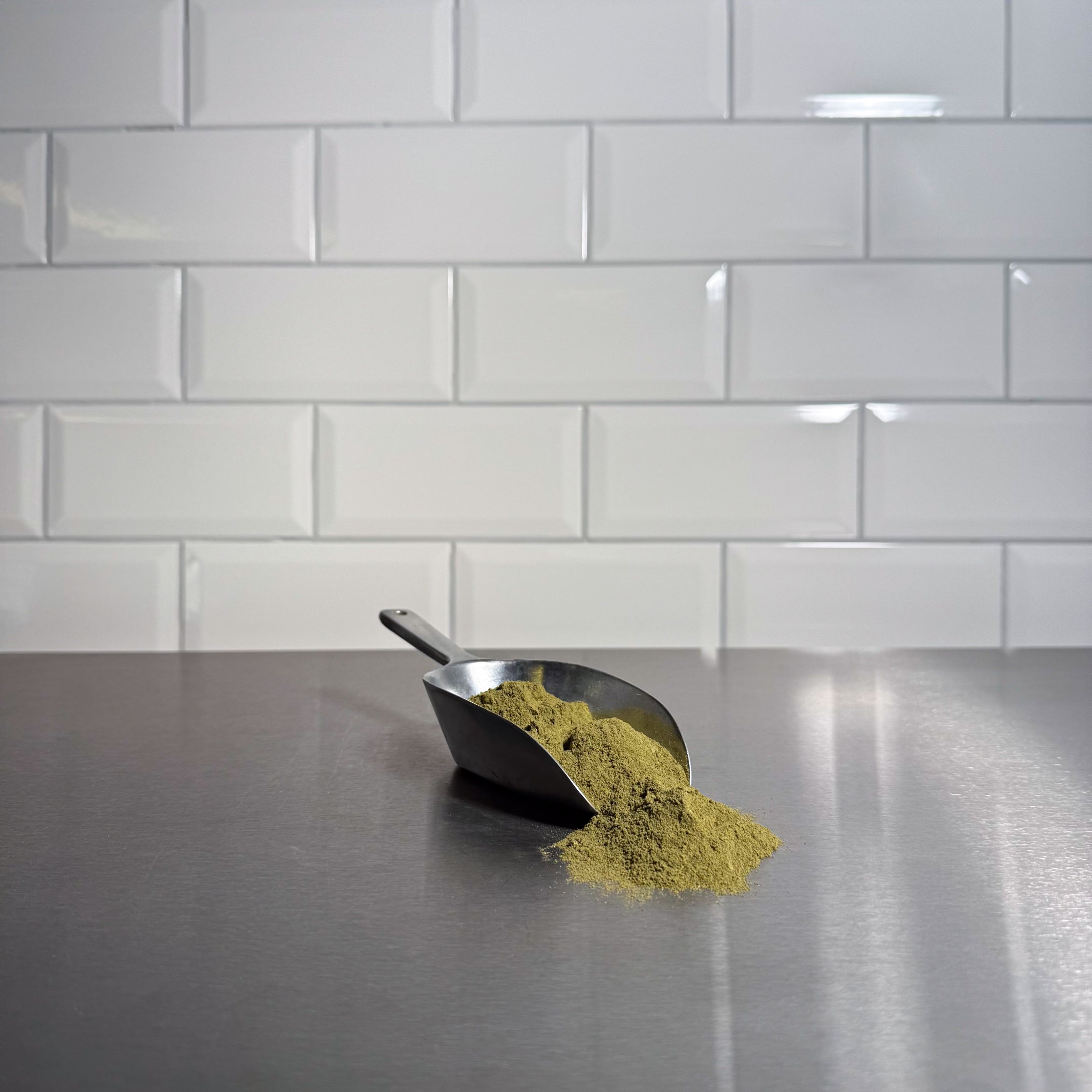Iodine – a trace element that is often overlooked but plays a crucial role in the health of dogs and cats. While wild predators meet their iodine needs from their entire prey, including the thyroid, the supply is somewhat more complicated with a BARF diet. This is where seaweed powder comes into play! But why is iodine so important, how is it dosed correctly, and why is a varied diet alone not enough? We'll explain!
Why is iodine so important for dogs and cats?
Iodine is essential for the function of the thyroid, which in turn is responsible for the entire metabolism, body temperature, the nervous system, and growth. Without adequate iodine intake, hypothyroidism can occur, which manifests itself in fatigue, weight gain, coat problems, and reduced activity.
The problem? Unlike humans, dogs and cats have no effective way of storing iodine. This means they depend on a continuous supply through their food.
How do wild animals meet their iodine needs?
Wolves, coyotes, and other predators absorb iodine by eating whole prey, particularly by consuming the thyroid gland. However, in the BARF diet, the thyroid gland is not fed because it is difficult to dose and can cause hormonal fluctuations. This creates a potential supply gap that must be filled with targeted iodine sources.
Why is meat alone not enough?
Those who think that a varied diet of muscle meat, organ meats, fish, and eggs will meet iodine needs are mistaken. Studies show that even with the occasional feeding of fish, the required amount of iodine is often not achieved. This is particularly critical for puppies and pregnant dogs, who have an increased need.
Seaweed Powder – The Natural Solution
Seaweed powder, especially from the brown algae Ascophyllum nodosum, is an excellent natural source of iodine. It allows for precise dosing and offers numerous other benefits:
✔ Natural source of iodine: Covers daily needs naturally.
✔ Supports metabolism: Promotes healthy thyroid function.
✔ Strengthens skin and coat: Provides valuable minerals such as zinc and selenium.
✔ Promotes pigmentation: Enhances natural coat color.
✔ Supports dental health: Helps combat plaque and freshens breath.
The correct dosage of seaweed powder – small but crucial!
Caution is advised when dosing seaweed powder! Iodine content can vary greatly, so only a controlled product with a known iodine content should be used. Over- or under-dosing can have negative effects on your pet's health.
The required amount depends on the body weight of your dog or cat and should be calculated individually. Since these are very small amounts, we recommend measuring the weekly ration in advance and distributing it over 3-4 days per week. This way, iodine intake remains constant without having to weigh tiny amounts every day.
Be careful with ready-made foods – too much iodine?
While raw feeders often provide too little iodine, the opposite can happen with ready-made foods. Many dry foods contain many times the actual iodine requirement, which can permanently strain the thyroid. Therefore, it's important to consciously and selectively control the iodine amount in homemade rations.
Conclusion: Iodine is essential when BARFing!
If you feed your dog or cat a BARF diet, you shouldn't leave their iodine intake to chance. Seaweed powder is the optimal solution to meet these needs naturally – but only in the right dosage! Choosing quality ensures a healthy thyroid and thus a vital, active, and cheerful animal.

